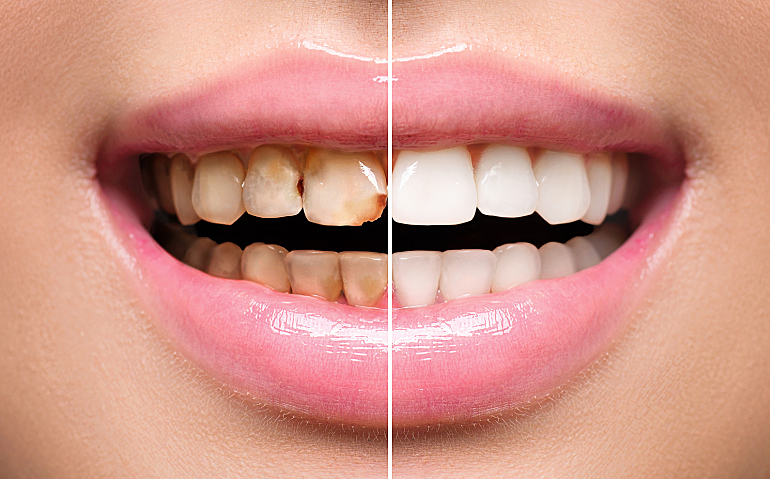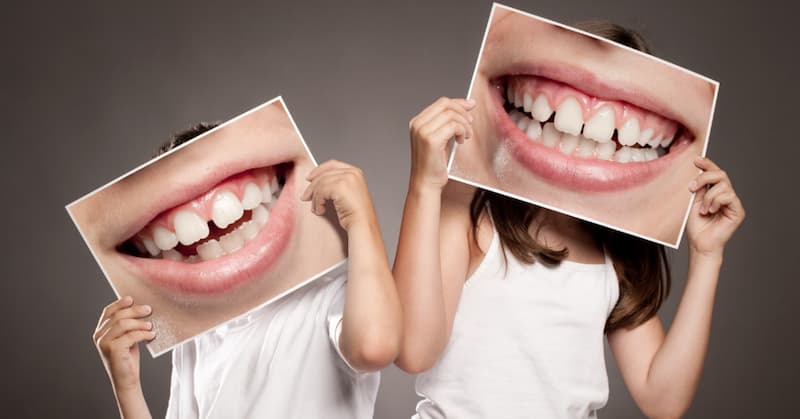Your eye color, your blood type, your height…Many things about you are uniquely generated by your parents, grandparents, and others in your family tree. Is “bad tooth” also inherited?
If your parents’ dental health is poor, you may also have problems. For example, no matter how hard you try, your oral health is poor. Although genetics is indeed associated with some oral health problems, this is not always the case. Genes control the development of teeth. Sometimes teeth may not form normally, which reduces the resistance of enamel to bacteria. In this article, you will learn more about how your genes affect your teeth and gums.
Table of Contents
How Genetics Impact Oral Health?
Just as some people may be susceptible to certain diseases, your mouth may be more susceptible to decay or infection. Here are the ways in which your genetics may cause your oral health problems:
- Your body’s immune system.
Believe it or not, your ability to resist infection plays an important role in your oral health. People with poor immune systems are more likely to suffer from tooth decay and a serious gum disease called periodontitis.
- The ability to produce saliva.
Saliva washes out bacteria and dental plaque in the mouth, but you may not be able to produce enough, so you have an increased chance of gum disease, tooth decay, and other oral problems.
- Development of teeth and enamel.
Your genes will affect the strength of your teeth from the start. Thin enamel makes it easier to get cavities and experience tooth pain.
Real Culprits For Bad Teeth

Oral Health Routine
Oral health habits can also have a negative impact on oral health. Not brushing your teeth at least twice a day can leave room for food and plaque, which can breed bacteria in the mouth. Over time, accumulation can lead to gingival atrophy, gingival inflammation, and tooth decay.
Some dental products are also too harsh on the mouth. A toothbrush with very hard bristles will actually tear your gums, doing more harm than good in your efforts to support oral health.
Diet
Many dentists will urge you to brush and floss your teeth, but not many dentists will urge patients to improve their diet as a whole. Although regular tooth washing, brushing, and flossing can help, an unhealthy diet can make it difficult to improve oral health.
Eating lots of healthy natural foods and limiting sugar and processed foods can reduce your exposure to food ingredients that cause tooth decay and gum disease.
Stress and Mental Health
Although stress does not seem to affect your teeth, mental health can affect your oral health! Chronic stress can lead to molars and eventually to gingival atrophy. Untreated mental health can lead to stress or a comfortable diet, which can also lead to tooth and gum damage.
Although this may not always seem the case, your body and mind are interconnected. A decline in the health status of one area may have a direct impact on other areas, and your oral health is not immune.
How Can You Overcome Genetics?

While you can’t control the genes you inherit, you do control the health of your smile. There are many things you can do to keep your mouth healthy:
Maintain Good Oral Hygiene
Needless to say, if you’re battling oral problems, you need to make an effort to maintain daily hygiene. Brushing and flossing twice a day are necessary. You may also consider adding a fluoride mouthwash to your oral care routine, especially if you have problems with saliva production.
See the Dentist Regularly
No one says you have to deal with verbal problems alone. In fact, you should work closely with your dentist on a regular basis to make sure these problems don’t get out of hand. Maybe you need professional cleaning more frequently than every six months. Maybe the dentist can recommend a special product to help you. Regardless, it can be helpful to have a professional on your side.
Ultimately, your genes don’t have to fully define who you are. You can take what others give you and make changes to improve your oral health. By taking these steps, you can help keep your smile healthy despite your family history.
Choose A Healthy Diet
The food and drinks you eat can have a big impact on your smile. For example, you probably already know that the sugar in candy can breed harmful bacteria in your mouth. Also, eating starchy, sugary foods like crackers, biscuits, chips, etc. can cause sticky plaque in the mouth, which can lead to many oral problems. Instead, eat foods that are good for your oral health, such as apples, pears, carrots, and leafy green vegetables. Drinking water throughout the day, rather than sugary sodas, juices, or sports drinks, also helps keep your mouth clean and hydrated.
Conclusion
Although many people attribute their conflicts with oral health to family history, genes alone cannot cause your teeth and gums problems.

